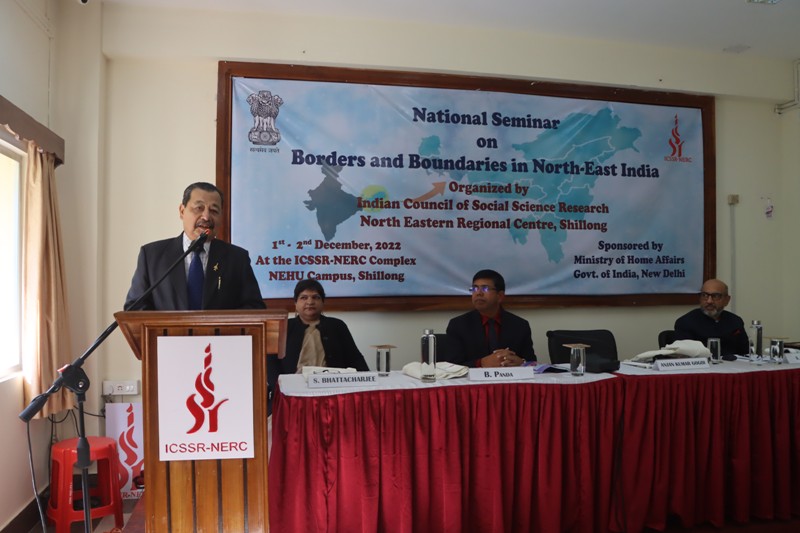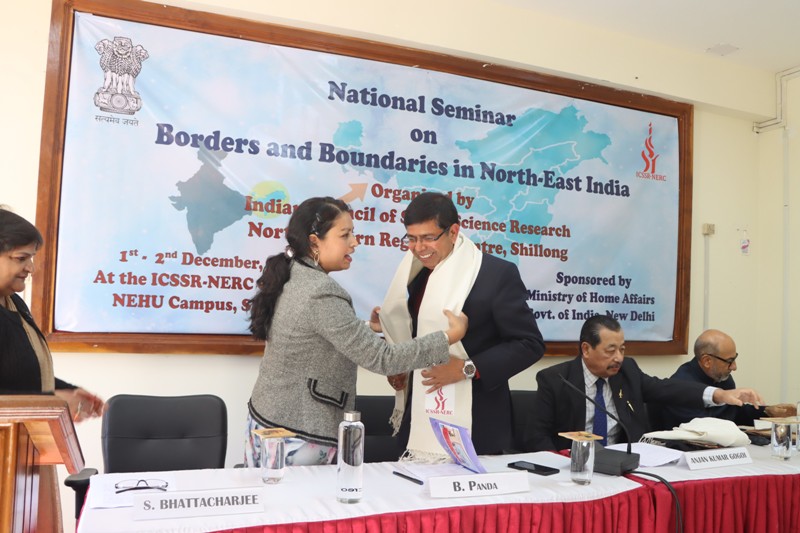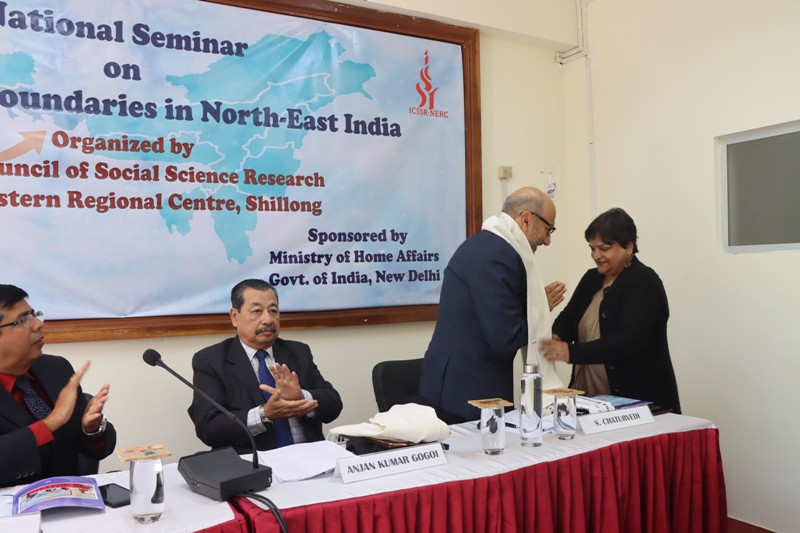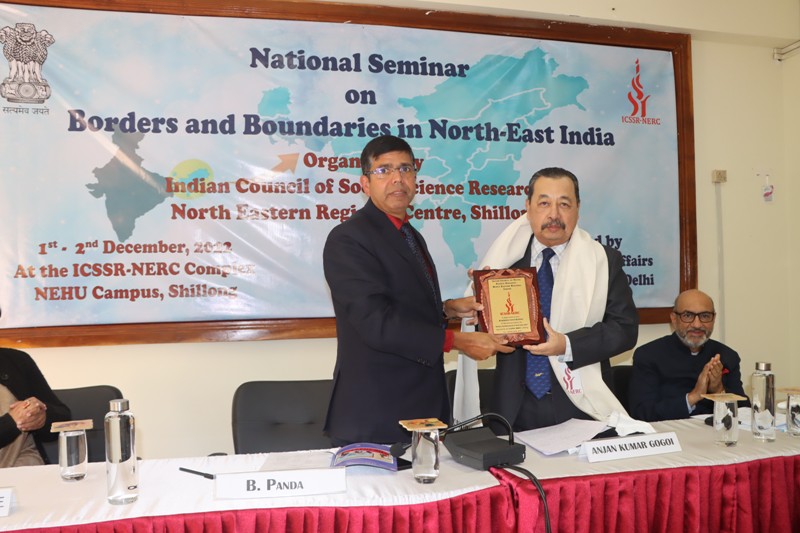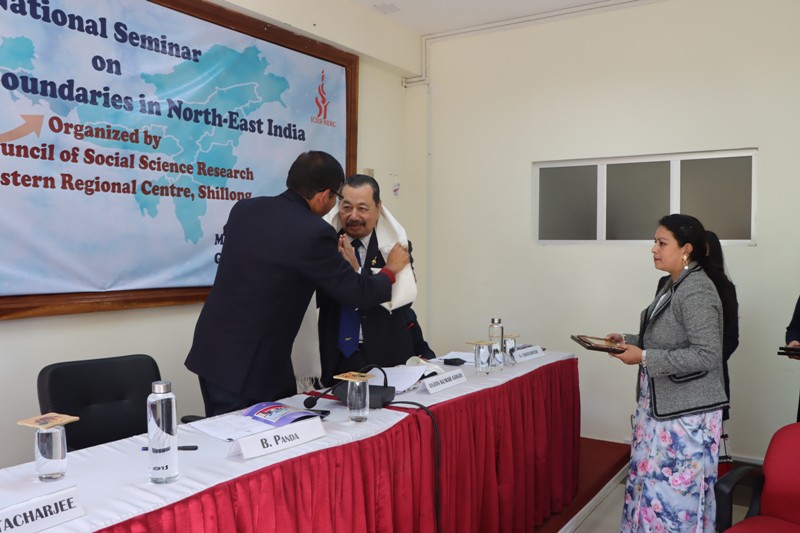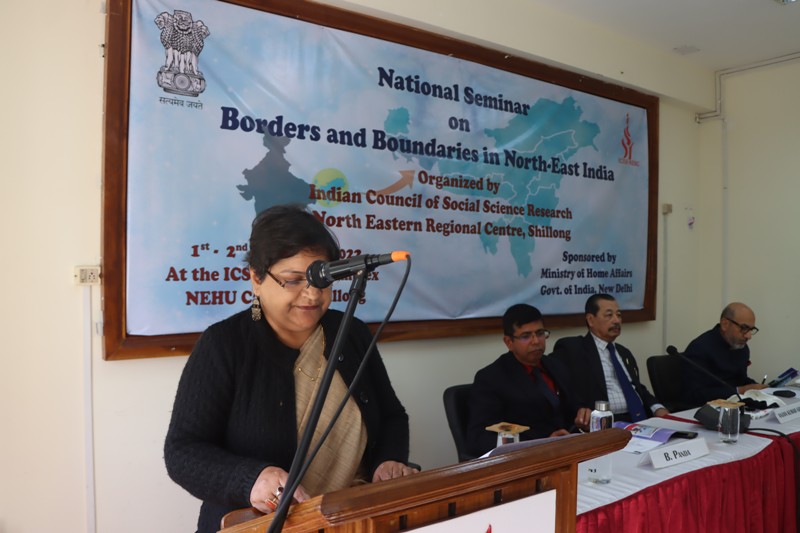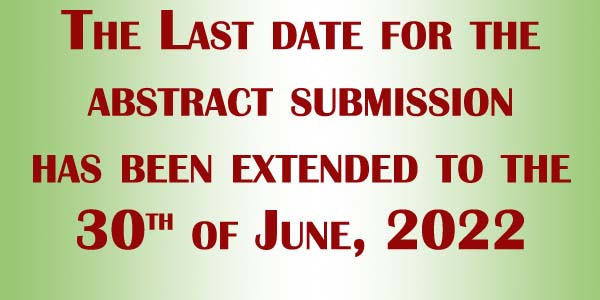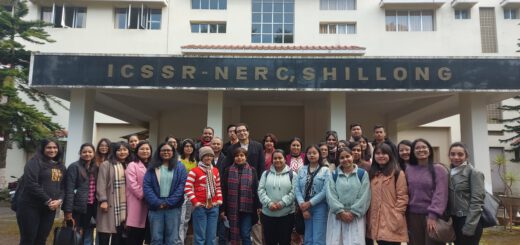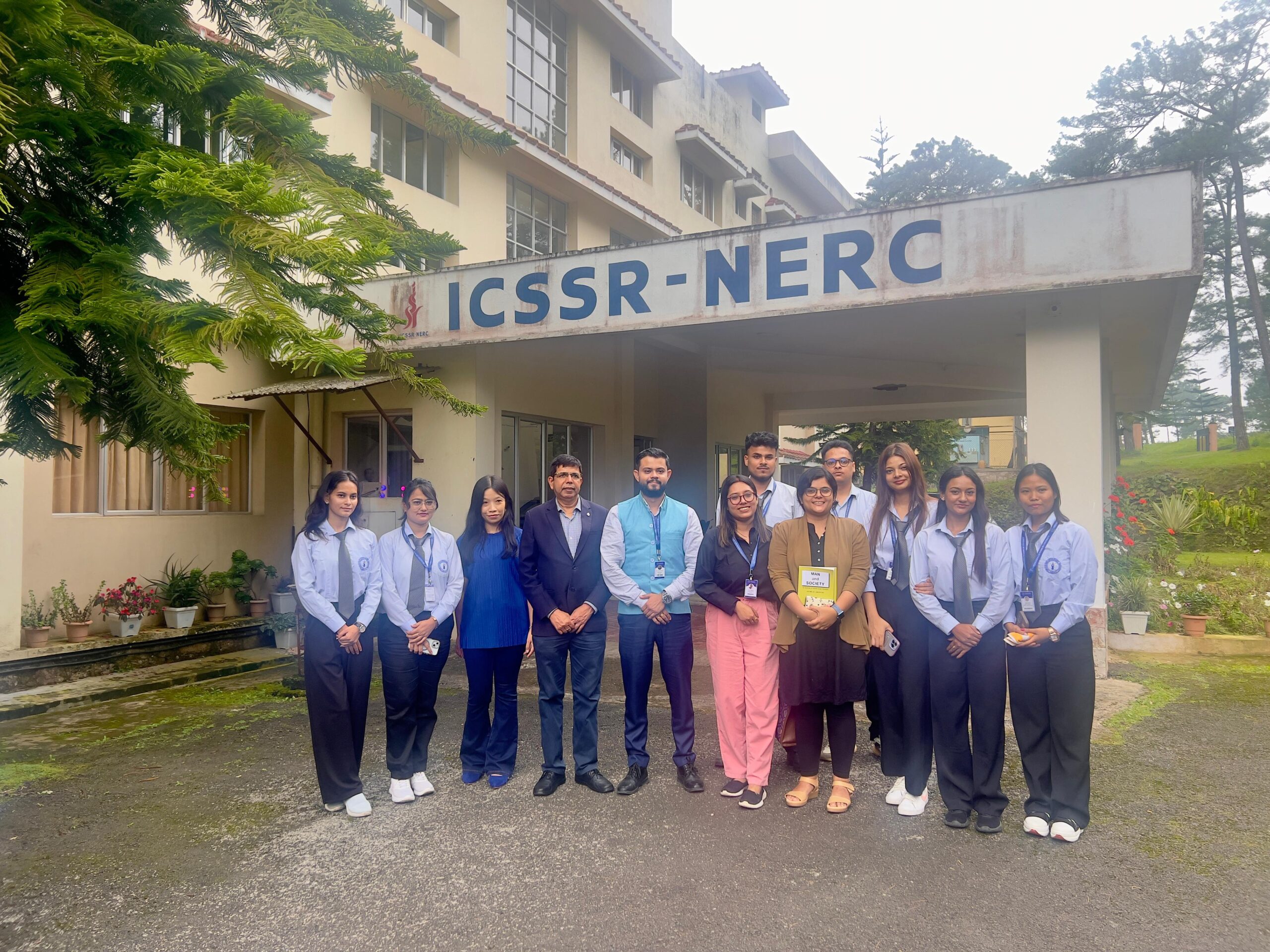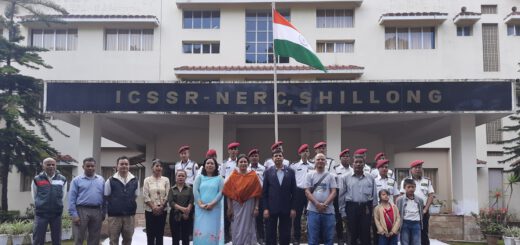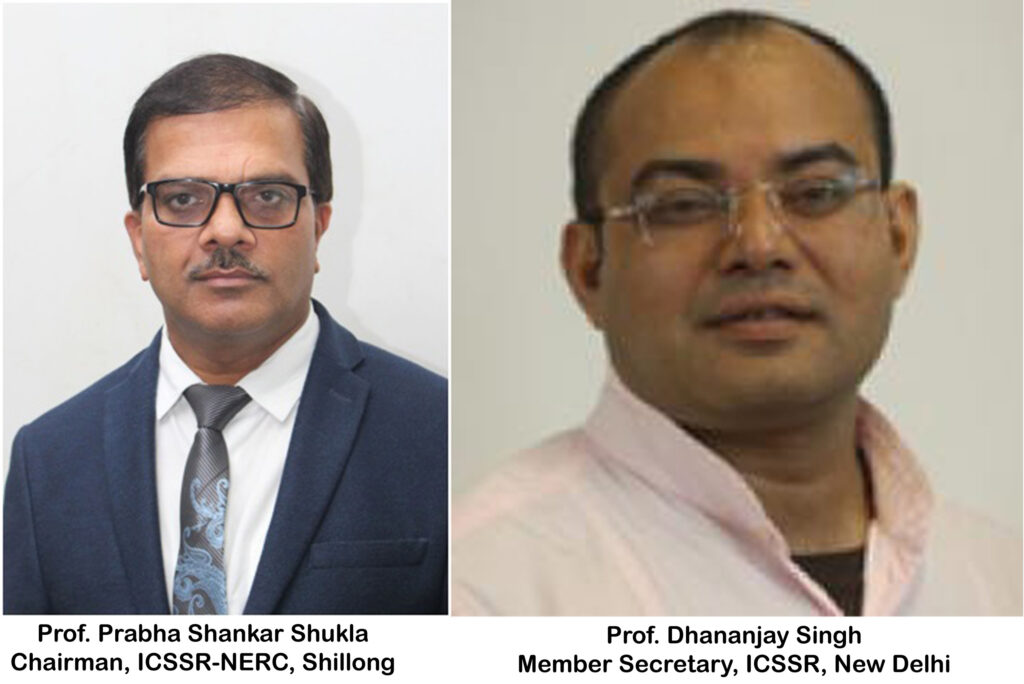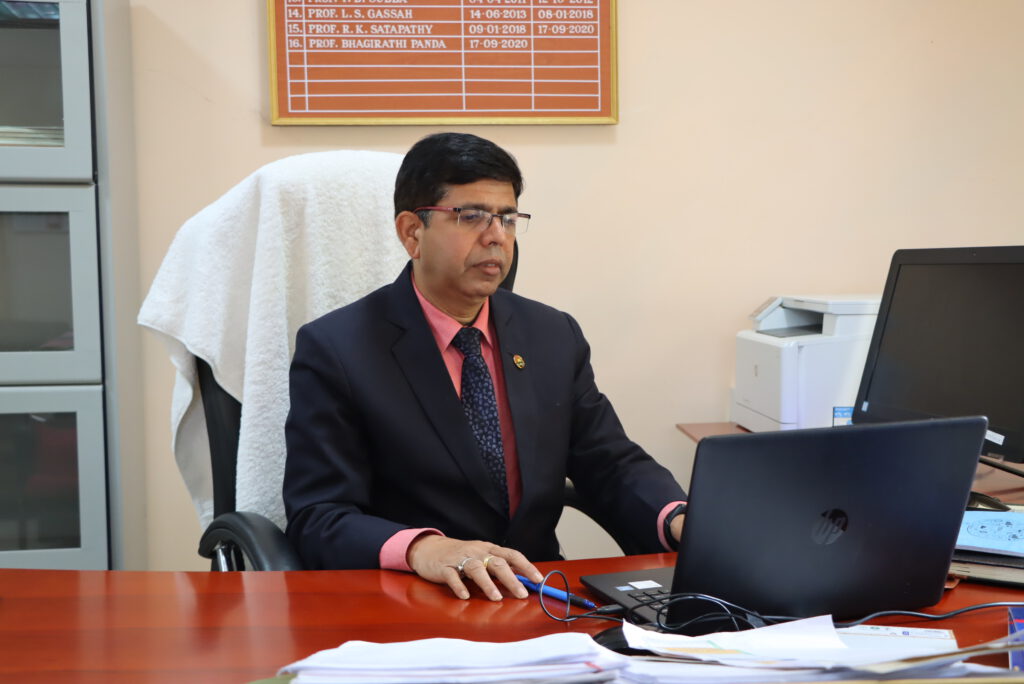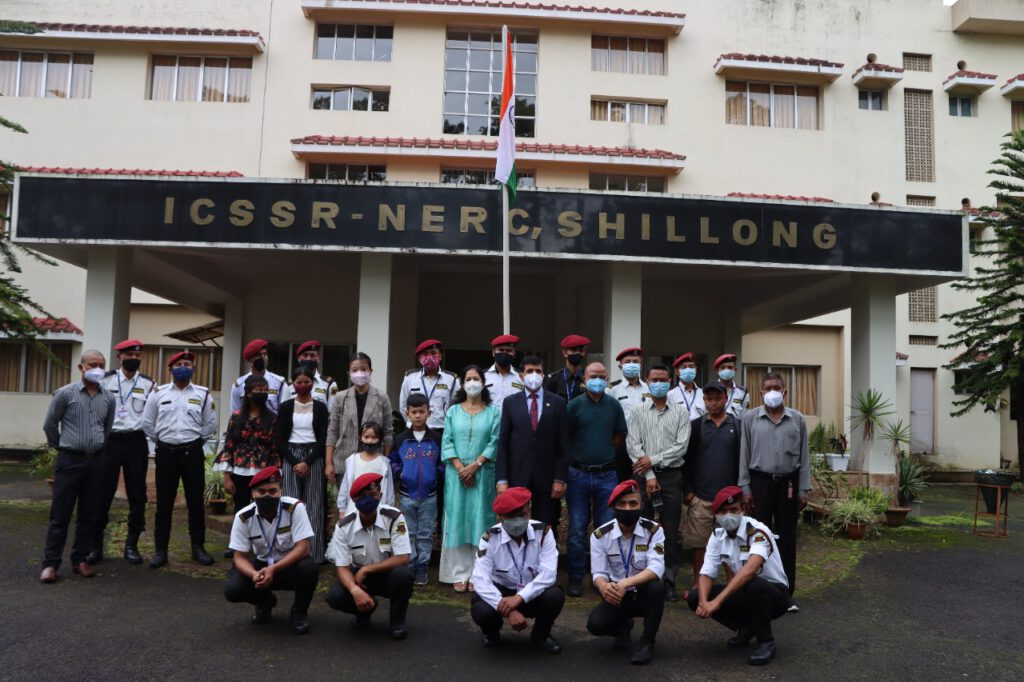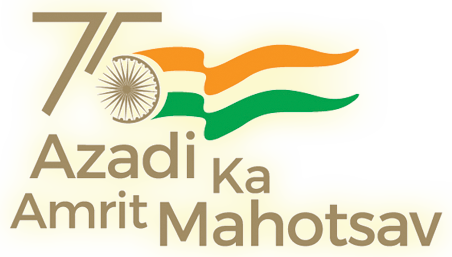National Seminar on Borders and Boundaries in India’s North-East on 1st and 2nd December, 2022
National Seminar
on
Borders and Boundaries in India’s North-East
To be organised by the ICSSR North Eastern Regional Centre, Shillong
The emergence of what today has come to be known as the ‘Northeast’ is integrally related to the history of almost continuous cracking and splitting of borders and boundaries in modern times. While much of the Northeast used to be loosely governed as ‘frontier’ in colonial times, it is only with the emergence of modern states that borders as sharply drawn lines are supposed to differentiate one from another. The reorganization of international borders, however, could not bring the historically existing economic and cultural continuities to an abrupt halt. These continuities, one must remember, do not necessarily exist as vestiges of the past, but are energised and rearticulated through a number of social and economic processes – the latest of which is perhaps that of globalization. In fact, postcolonial states in the region – notwithstanding their mutually exclusive territorialities in theory – have only tried hard to come to terms with such continuities. As a result, a number of intermediate arrangements ranging from border trade to flexible visa regime and many others have come into being. It will be interesting to understand the nature of these arrangements that stand between the exclusive territorial claims of the modern states on one hand and the global logic of expanding markets and the full integration of the region into the global political economy on the other. The intermediate arrangements show how much borders can open in order to adjust to the newly emerging realities without losing their identity as borders.
While borders arc predominantly defined with reference to the post- Westphalian architecture of nation-states, international. interstate (within the Indian Union) or even other forms of administrative borders have their implications for social and economic relations in general. How do administrative borders create many other forms of borders within the society? These invisible borders set societies and economies apart – often independently of the state willingly, creating them. But these borders do exist – often taking a toll on human relations and lives. Targeted killings and ethnic cleansings are just two examples of how these unofficial borders inflict everyday partitions on the societies of the region.
The North Eastern region is an economy in making. The states in the region are not properly connected amongst themselves through developed infrastructure. The North Eastern Council (NEC) which was created to ensure security and promote regional development in the region hasn’t been able to realise much in terms of regional development. What are the reasons for the sub-optimal performance of NEC connecting borders and boundaries?
Migration across the state and international boundary has its impact on society, economy, polity and culture of the region as NER is inextricably related to the border and boundaries. How is such migration related to the society, economy and polity of the region?
The seminar in a way seeks to understand the borders in this dynamic interaction – both in their openness and closeness. Borders are not to be understood merely as lines where one society/state ends and another begins, but reflect of how societies get constituted and configured through them. Societies do not constitute borders: borders constitute societies. Do these changes in our understanding of borders in theory compel us to revisit the Northeast as ‘borderland’, as a land with many visible and albeit invisible borders or as a partitioned society?
Panels could be organised around the following themes:
- The Northeast: From ‘Frontier’ to ‘Borders’ and ‘Borderland’
- Borders in the Age of Globalization
- Transformation in the Life of Borders: How Do Modern States Grapple with Borders?
- Borders Within: Social and Economic Implication of Borders
- Border Trade
- Borders, Migration and Development
- Borders and Regional Economic Development
- Border and the Production of Collective Subjects
- Border Violence and Its Implications for Development
- Any other theme contextual to Border and Boundary Studies
Interested scholars/researchers/academicians/policy makers are invited to submit a copy of the abstract outline (200 words) by 30th June 2022. On acceptance, the invited authors have to submit the full length paper (3000-5000 words) by 30th September 2022. All submissions and correspondence may be made at: icssrnerc@gmail.com
The Last date for submission of Full papers for the National Seminar on Border and Boundaries in North
East India to be held on 1st and 2nd of December, 2022, has been extended to 15th of November, 2022.





















